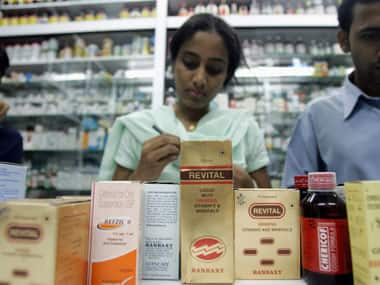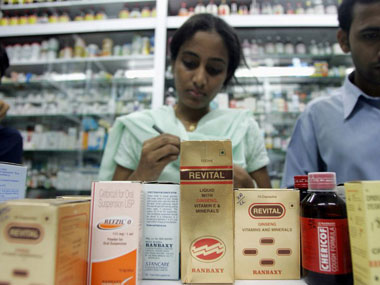While drug major Ranbaxy Laboratories pleaded guilty of selling adulterated drugs, intentionally making false statements to the US government and agreed to pay Rs $500 million in fines, none of its executives have been criminally charged for the offences.
Former Ranbaxy top executive Dinesh S. Thakur, who turned whistle-blower to expose Ranbaxy’s fraud, when asked by Business Standard during an interview if Ranbaxy’s drugs may have in any way caused harm to patients, said, “The (US) Food and Drug Administration, when they invoked the Integrity Policy in 2008, said they did not have data to say that the drugs are not safe. In countries like India, South Africa and Brazil where systems are not as robust as they are in this country (US), it is difficult to collect all that data. So, one cannot conclusively say that there was any direct harm with the quality of medication that Ranbaxy dispensed."
[caption id=“attachment_845371” align=“alignright” width=“380”]
 Reuters[/caption]
Reuters[/caption]
Be that as it may, petition has now been filed in the Supreme Court by advocate M L Sharma seeking investigation and criminal prosecution of former and present directors of Ranbaxy, the sealing of company’s manufacturing units in Ponta Sahib (Himachal Pradesh) and Dewas (Madhya Pradesh) and a ban on Ranbaxy from supplying medicines in India.
“In 2008 the agency (US Food and Drug Administration) halted the importation of 30 different drugs from two of Ranbaxy’s manufacturing plants in India and invoked a rare Application Integrity Policy, stopping the review of new drug applications from the Paonta Sahib manufacturing site until Ranbaxy proved their truthfulness.”
“In January 2012 the Justice Department placed Ranbaxy under a sweeping consent decree, describing the action as “ground breaking in its international reach.” The decree prohibited the company from selling drugs in the U.S. that were made at several of Ranbaxy’s Indian manufacturing plants until the quality could be verified. It also required the company to undergo independent auditing,” writes Fortune’s Katherine Eban in her comprehensive report on Ranbaxy saga of fraud in ‘Dirty Medicine’.
However, India’s response to Ranbaxy pleading guilty to supplying adulterated medicines, seems to have been surprisingly calm.
One hospital in Mumbai reportedly issued a circular not to prescribe Ranbaxy medicines, while the Drug Controller General of India (DCGI) has promised to “look into the facts and documents in the coming weeks” and “take action against the erring company,” reported Mint.
Impact Shorts
More ShortsCan Ranbaxy’s admission of guilt to the US government of committing fraud expose it to criminal investigation in India? All eyes are now on the Supreme Court and how it will proceed on the Ranbaxy petition.
)